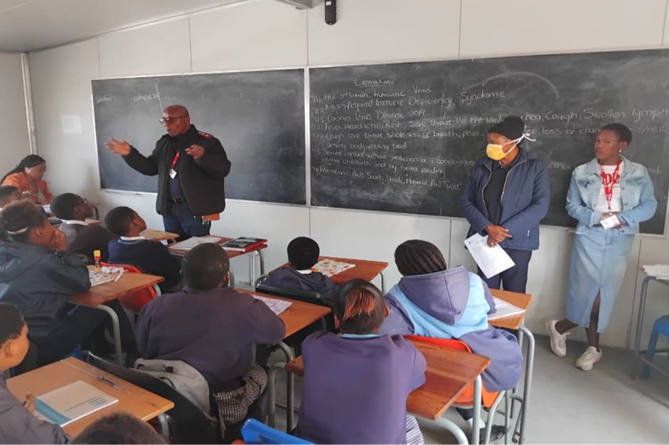While providing technical assistance to health facilities in Thaba Nchu Sub-District in Mangaung, the THINK team was informed about a 16-year-old that had tested positive for TB at Gaongalelwe Clinic. Recognizing the high transmission risk in schools, the team quickly mobilized to trace contacts at the school and prevent further spread.
The teenager immediately received TB treatment and adherence counselling. The parents and caregivers were also supported and educated to ensure proper involvement and treatment adherence. A meeting with the parents and School Governing Body explained the purpose of contact tracing and obtained consent for screening the learners. TB awareness sessions for students and staff helped reduce stigma and encourage testing.
A total of 95 contacts were screened and their sputum samples collected for testing. This resulted in five – one teacher and four learners – being diagnosed with TB and promptly started on treatment. The remaining contacts who tested negative received TB Preventive Therapy (TPT) to reduce future risk.
Important lessons from this intervention include:
- Early Engagement is Key: Involving parents and school staff early in the process, mitigated the risk of TB transmission and enabled a quicker more effective
- Collaboration Enhances Impact: The collaboration between the school management, parents, the school health nurse, and the THINK teams was crucial for effective contact tracing and awareness efforts.
- Timely Preventive Therapy is Critical: Administering TPT and monitoring contacts helped ensure protection from developing active TB
- Continuous Follow-Up is Essential: Regular follow-ups and symptom monitoring among patients and contacts ensured appropriate care and treatment adherence.
This story demonstrates the effectiveness of a coordinated, community- based response to TB detection and treatment, highlighting the power of collaboration between THINK, the Department of Health, local schools, and the community.

